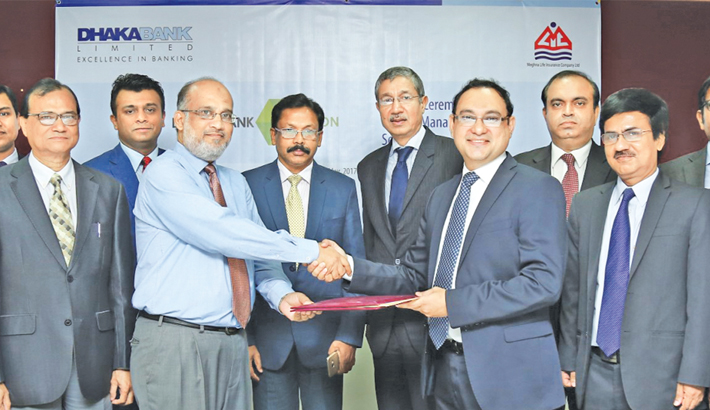The banking sector's capital base expanded 0.80 percent in the first quarter of 2017 compared to the last quarter, but nine banks failed to maintain the minimum capital.
At the end of March, the total capital in the banking system stood at Tk 84,424 crore, according to data from Bangladesh Bank.
The sector's capital surplus shrunk 20.88 percent to Tk 2,330 crore in the three months to March 31 due to increase in capital requirement in line with Basel III standards, a international capital framework that was introduced in January last year by Bangladesh Bank.
As per the Basel III framework, the state banks Agrani, BASIC, Janata, Rupali, Sonali, Bangladesh Krishi Bank (BKB) and Rajshahi Krishi Unnayan Bank (Rakub) faced a capital shortfall of Tk 13,977 crore because of high loan defaults.
BKB has shortfall of Tk 7,252 crore, Rakub Tk 778 crore, BASIC Tk 2,961 crore, Sonali Tk 2,557 crore and Rupali Tk 637 crore.
To shore up their capital base, the government is expected to keep an allocation in the budget for fiscal 2017-18, which will be announced on June 1.
All private banks save for Bangladesh Commerce Bank and Investment Corporation of Bangladesh succeeded in fulfilling the Basel III capital requirement.
The central bank last year took steps to improve banks' financial health by increasing their capital to risk-weighted assets ratio (CRAR) in line with Basel III standards.
CRAR is a measure of a bank's capital and is used to protect depositors and promote the stability and efficiency of financial systems around the world.
Basel III is a comprehensive set of reform measures developed by the Basel Committee on Banking Supervision to strengthen regulation and supervision and reduce risks of the banking sector globally.
In March, the banks' average CRAR was 10.68 percent, down from 10.80 percent three months earlier.
Last year, the central bank decided to implement the Basel III framework and conducted a quantitative impact study.
On the basis of the study, they also sent a roadmap to banks on how they would implement the framework.
In four quarters from January 2016, the BB evaluated the banks' capital adequacy as per the Basel III standards. Until December 31, 2015, the banks had to maintain their capital adequacy ratio at 10 percent of risk-weighted credit exposures.
From 2016 to 2019, the banks will have to maintain their capital at 0.625 percent in addition to 10 percent as their CRAR.
In the first quarter of 2017, the CRAR of the private banks decreased to 12.22 percent from 12.36 percent in the previous quarter.
For the state banks, it increased to 5.92 percent from 5.86 percent.
news:daily star/30-may-2017



 Dhaka Bank acting Managing Director Emranul Huq and Meghna Life Insurance Company Chief Executive Officer (CEO) Narayan Chandra Rudra exchange documents after signing an agreement in the capital recently.
Dhaka Bank acting Managing Director Emranul Huq and Meghna Life Insurance Company Chief Executive Officer (CEO) Narayan Chandra Rudra exchange documents after signing an agreement in the capital recently.